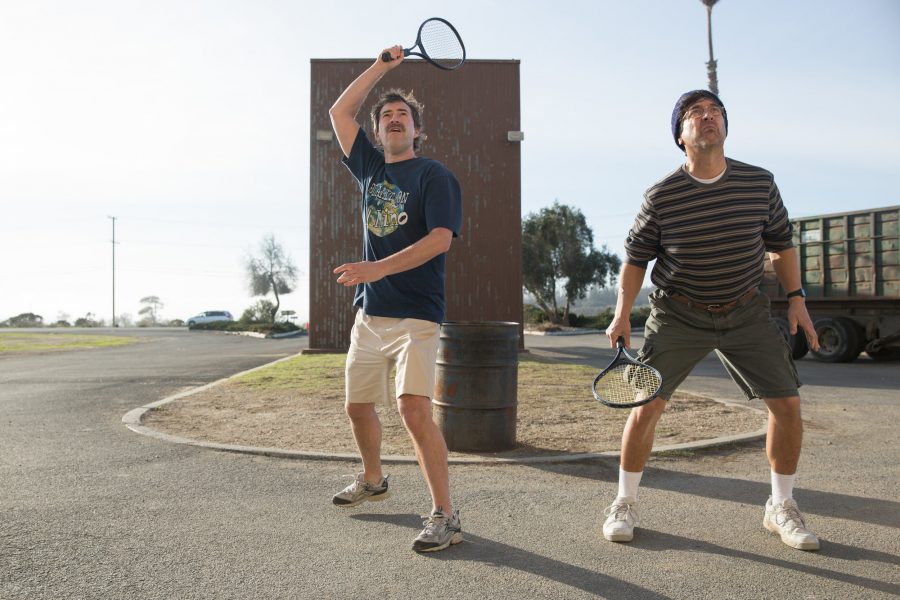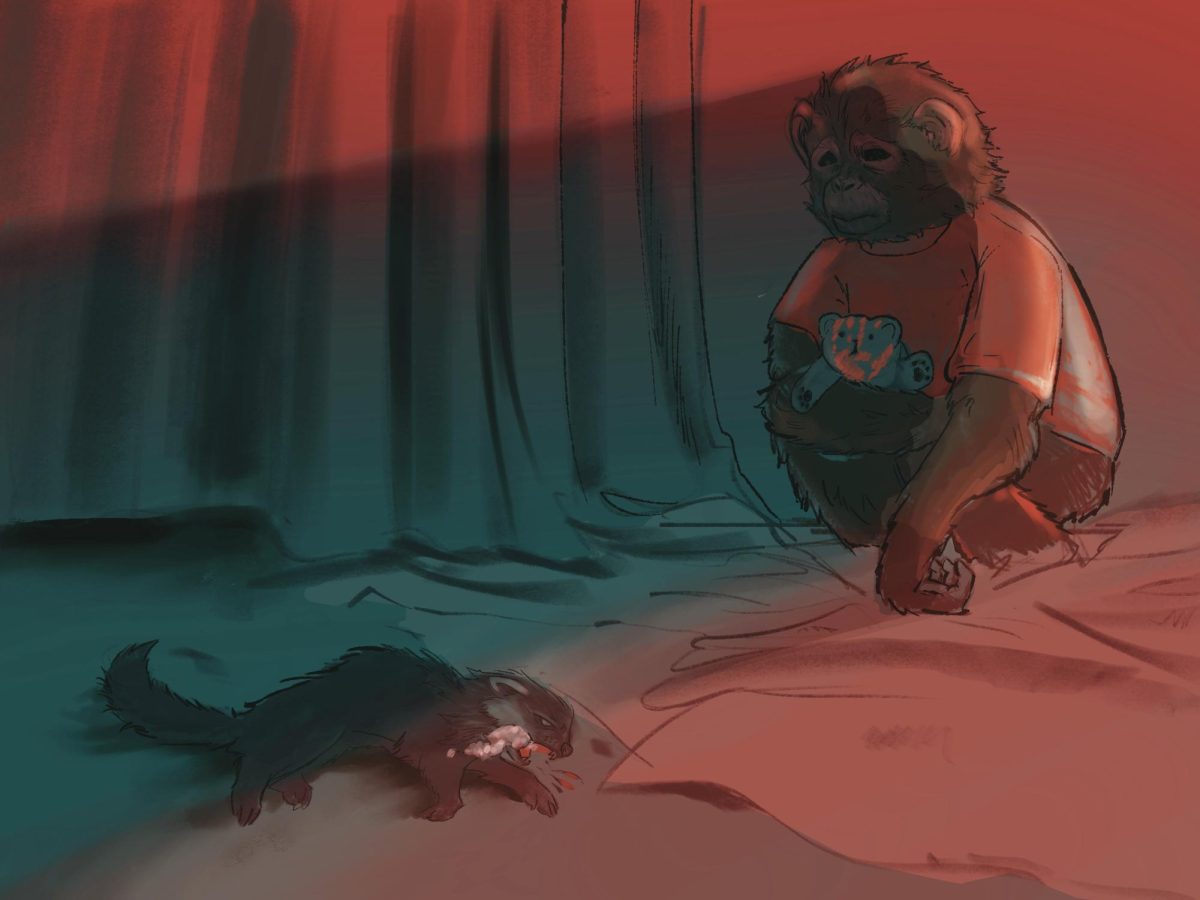Oftentimes, the beauty of a film relies not in what’s said, but in what isn’t said. Just like in life, there are moments and relationships that don’t need to be explained or monologued to death. Everyone involved just gets it because it’s obvious.
The new Netflix original movie Paddleton fully understands this. The drama-comedy stars Ray Romano and Mark Duplass as two oddball neighbors who have become best friends. From the very first scene, it’s apparent that the two, Michael and Andy, have an unbreakable bond.
They do nearly everything together, whether it’s solving puzzles, going to the doctor or playing the eponymous game that they invented themselves. It seems that all they have is each other, but they are quite comfortable with that.
This comfort abruptly ends when Michael gets terminal cancer and decides to kill himself before the disease beats him to it. It’s a jarring event that changes everything and yet simultaneously changes nothing. They do almost everything the exact same way as they did before, aside from a road trip to buy the medicine for Michael’s assisted suicide.
The entire movie revolves around how these two men deal with — or more aptly, neglect to deal with — the impending death and Michael’s decision to euthanize himself.
This film could have easily been derailed by becoming a cliché vision of a life-altering road trip filled with self-discovery. Instead, it gently shows its audience the relationship between the protagonists, one of whom just so happens to be dying.
Without any of the excepted drawn-out drama or overdone self-depreciating humor, the movie delivers a profoundly touching tale of friendship and loss.
Paddleton doesn’t get tied up in deep conversations or life-changing epiphanies. Even when it has the chance to travel down the path of an unnecessary romance or incorporation of a new potential friend to the dynamic, it stays true to its course. This movie has few other characters because it doesn’t need them.
It’s a quaint story about two male friends who communicate all they need to say without saying much at all.
The script is an example of subtlety at its best. Everything is addressed indirectly with facial expressions or passive gestures that prove how both protagonists are feeling.
It’s beyond obvious that these two men platonically care for each other more than either of them can ever express in words, which is why they don’t. Instead, they just watch their favorite movie together on repeat and cook dinner for one another, all the while never becoming overly sentimental or beating the audience over the head with emotion.
Their entire friendship is a perfect characterization of bonds between some males. There is no need to constantly express one’s love for another. It’s understood. It goes without saying.
Although Paddleton is classified as a comedy, this is definitely not recommended to anyone who wants to just laugh. While there are some genuinely funny moments in the film, it’s certainly not a laugh-out-loud feature by any stretch. That being said, it’s also difficult to purely classify it as a drama because it doesn’t carry the weight of so many other cancer movies before it.
At its core, it’s just an uncomplicated yet heavy story about losing a loved one.
Andy and Michael’s bromance may not be for everyone. Their characters are strange and quirky, almost painfully so. They don’t fit in well among other people, which is why they have found comfort in each other. Some may find it nuanced and charming, while others may think they are both too aloof to connect with.
Regardless, the final 20 minutes of the film are what make Paddleton an absolute must-watch. The actors’ performances throughout the entire movie are phenomenal, but especially during the last half hour. Duplass has already proven himself to be quite the actor over the years, but Romano’s stellar dramatic turn is quite a far cry from the sitcom dad so many people are used to seeing from him.
His carefully crafted expression of silent pain through each pivotal second is so raw and relatable that it’s enough to bring anyone who has ever experienced loss in their life to tears.
The movie does not set out to make the viewer cry or learn something, yet it does both of those things. By presenting grief as straightforward and true to life as it possibly can, it awakens something true in the audience: Sometimes good people leave the world too soon, long before those who love them are ready to say goodbye. Yet, as impossibly difficult as it may feel, it’s necessary to keep going without these people, if for no other reason than for these people.
Paddleton displays that in a way that few films about grief do. It doesn’t say any of these things because it doesn’t have to. This is a movie that makes the viewer extremely appreciative of those around them by subtly delivering the all-too-real reminder that anyone could end up suffering the same fate as Michael, thus leaving their loved ones behind to play their made-up game of Paddleton all by themselves.








